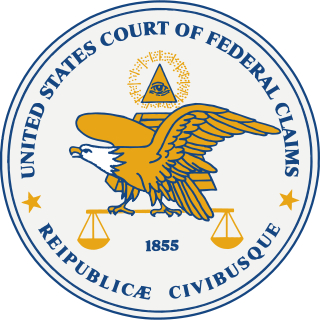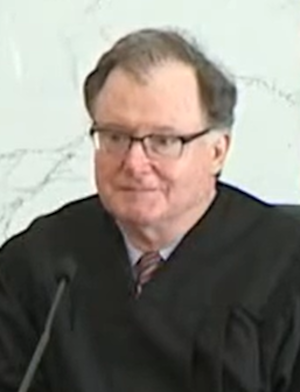In United States law, an Alford plea, also called a Kennedy plea in West Virginia, an Alford guilty plea, and the Alford doctrine, is a guilty plea in criminal court, whereby a defendant in a criminal case does not admit to the criminal act and asserts innocence, but accepts imposition of a sentence. This plea is allowed even if the evidence to be presented by the prosecution would be likely to persuade a judge or jury to find the defendant guilty beyond a reasonable doubt. This can be caused by circumstantial evidence and testimony favoring the prosecution, and difficulty finding evidence and witnesses that would aid the defense.

José Padilla, also known as Abdullah al-Muhajir or Muhajir Abdullah, is a United States citizen who was convicted in a federal court of aiding terrorists.
United States v. Dominguez Benitez, 542 U.S. 74 (2004), was a United States Supreme Court case in which the Court ruled that, in a criminal proceeding in federal court, a defendant who does not alert the district court to a possible violation of Rule 11 of the Federal Rules of Criminal Procedure must show on appeal that the violation affirmatively affected his rights in order to obtain reversal of his conviction by guilty plea. Rule 11, which pertains to criminal prosecutions in United States federal courts only, governs the offering of plea bargains to criminal defendants and the procedures district courts must employ to ensure that the defendant knows of and properly waives his trial-related constitutional rights.
Blakely v. Washington, 542 U.S. 296 (2004), held that, in the context of mandatory sentencing guidelines under state law, the Sixth Amendment right to a jury trial prohibited judges from enhancing criminal sentences based on facts other than those decided by the jury or admitted by the defendant. The landmark nature of the case was alluded to by Justice Sandra Day O'Connor, who characterized the decision as a "Number 10 earthquake".

The United States Court of Federal Claims is a United States federal court that hears monetary claims against the U.S. government. It was established by statute in 1982 as the United States Claims Court, and took its current name in 1992. The court is the successor to trial division of the United States Court of Claims, which was established in 1855.

Irwin Allen Schiff was an American libertarian and tax resistance advocate known for writing and promoting literature in which he argued that the way in which the income tax in the United States is enforced upon individuals, as a tax on one's time or wages, is illegal and unconstitutional. Judges in several civil and criminal cases ruled in favor of the federal government and against Schiff. As a result of these judicial rulings Schiff was in a hospital prison serving a sentence of 162 months at the time of his death.
In France, a cour d'assises, or Court of Assizes or Assize Court, is a criminal trial court with original and appellate limited jurisdiction to hear cases involving defendants accused of felonies, meaning crimes as defined in French law. It is the only French court that uses a jury trial.
On May 22, 1995, 16-year-old Jimmy Farris, the son of a Los Angeles Police Department officer, was stabbed to death. Farris and his friend, Michael McLoren, were next to a clubhouse-type fort in McLoren's backyard. Four acquaintances of Farris and McLoren jumped the chainlink fence and approached the fort. There was a fight inside the fort. Farris and McLoren went into the house, bleeding from stab wounds, while the other four climbed back over the fence and left. Farris died before paramedics arrived. McLoren was airlifted to UCLA Medical Center.
Lockyer v. Andrade, 538 U.S. 63 (2003), decided the same day as Ewing v. California, held that there would be no relief by means of a petition for a writ of habeas corpus from a sentence imposed under California's three strikes law as a violation of the Eighth Amendment's prohibition of cruel and unusual punishments. Relying on the reasoning of Ewing and Harmelin v. Michigan, the Court ruled that because no "clearly established" law held that a three-strikes sentence was cruel and unusual punishment, the 50-years-to-life sentence imposed in this case was not cruel and unusual punishment.
Strickland v. Washington, 466 U.S. 668 (1984), was a landmark Supreme Court case that established the standard for determining when a criminal defendant's Sixth Amendment right to counsel is violated by that counsel's inadequate performance.

Connecticut v. Doehr, 501 U.S. 1 (1991), was a United States Supreme Court case in which the Court held that a state statute authorizing prejudgment attachment of a defendant's real property upon the filing of an action without prior notice or hearing, a showing of extraordinary circumstances, or a requirement that the plaintiff post a bond violates the Due Process Clause of the Fourteenth Amendment.

Robert Neil Chatigny is a senior United States district judge of the United States District Court for the District of Connecticut.

Courts of Michigan include:

The Pirate Bay trial was a joint criminal and civil prosecution in Sweden of four individuals charged for promoting the copyright infringement of others with the torrent tracking website The Pirate Bay. The criminal charges were supported by a consortium of intellectual rights holders led by the International Federation of the Phonographic Industry (IFPI), who filed individual civil compensation claims against the owners of The Pirate Bay.

The Wisconsin circuit courts are the general trial courts in the state of Wisconsin. There are currently 69 circuits in the state, divided into 9 judicial administrative districts. Circuit court judges hear and decide both civil and criminal cases. Each of the 249 circuit court judges are elected and serve six-year terms.
The Virginia Circuit Courts are the state trial courts of general jurisdiction in the Commonwealth of Virginia. The Circuit Courts have jurisdiction to hear civil and criminal cases. For civil cases, the courts have authority to try cases with an amount in controversy of more than $4,500 and have exclusive original jurisdiction over claims for more than $25,000. In criminal matters, the Circuit Courts are the trial courts for all felony charges and for misdemeanors originally charged there. The Circuit Courts also have appellate jurisdiction for any case from the Virginia General District Courts claiming more than $50, which are tried de novo in the Circuit Courts.

The kids for cash scandal centered on judicial kickbacks to two judges at the Luzerne County Court of Common Pleas in Wilkes-Barre, Pennsylvania, US. In 2008, judges Michael Conahan and Mark Ciavarella were convicted of accepting money in return for imposing harsh adjudications on juveniles to increase occupancy at a private prison operated by PA Child Care.

The Italian Code of Criminal Procedure contains the rules governing criminal procedure in every court in Italy. The Italian legal order adopted four codes since the Italian Unification. After the first two codes, in 1865 and 1913, the Fascist Government established in 1930 a new code adopting an inquisitorial system. In 1988 the Italian Republic adopted a new code, that could be considered to be somewhere in between the inquisitorial system and the adversarial system.
Glasser v. United States, 315 U.S. 60 (1942), was a landmark decision of the US Supreme Court on two issues of constitutional criminal procedure. Glasser was the first Supreme Court decision to hold that the Assistance of Counsel Clause of the Sixth Amendment required the reversal of a criminal defendant's conviction if his lawyer's representation of him was limited by a conflict of interest.

Chad Andrew Readler is an American lawyer who serves as a United States circuit judge of the United States Court of Appeals for the Sixth Circuit. He previously served as a principal deputy and former acting assistant attorney general for the United States Department of Justice Civil Division.











